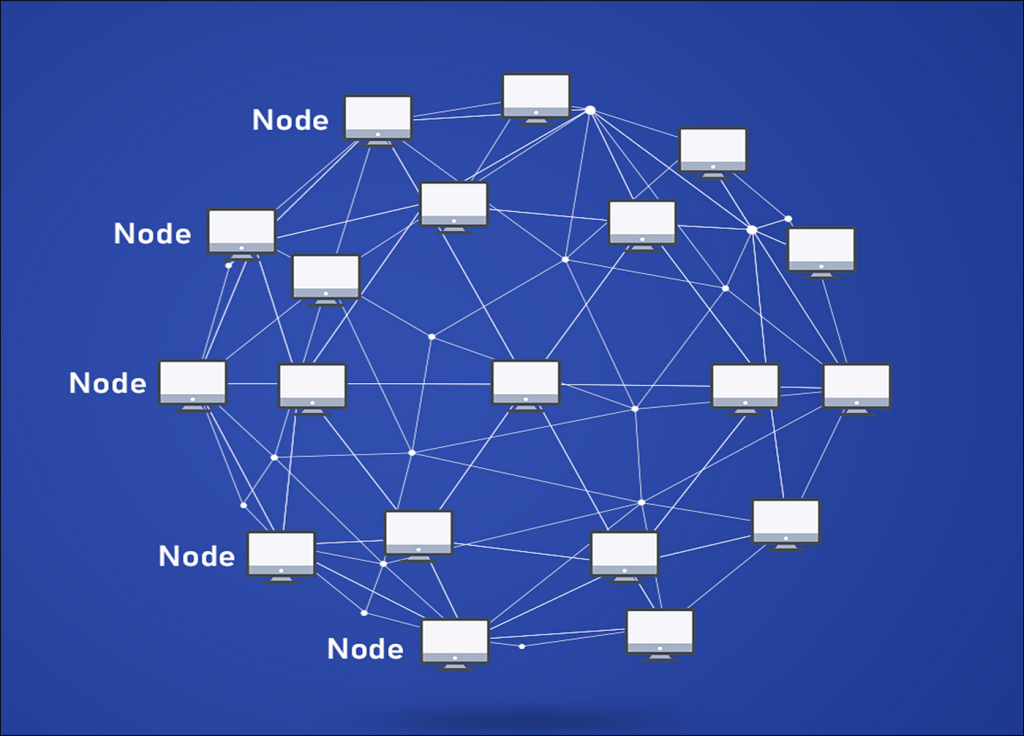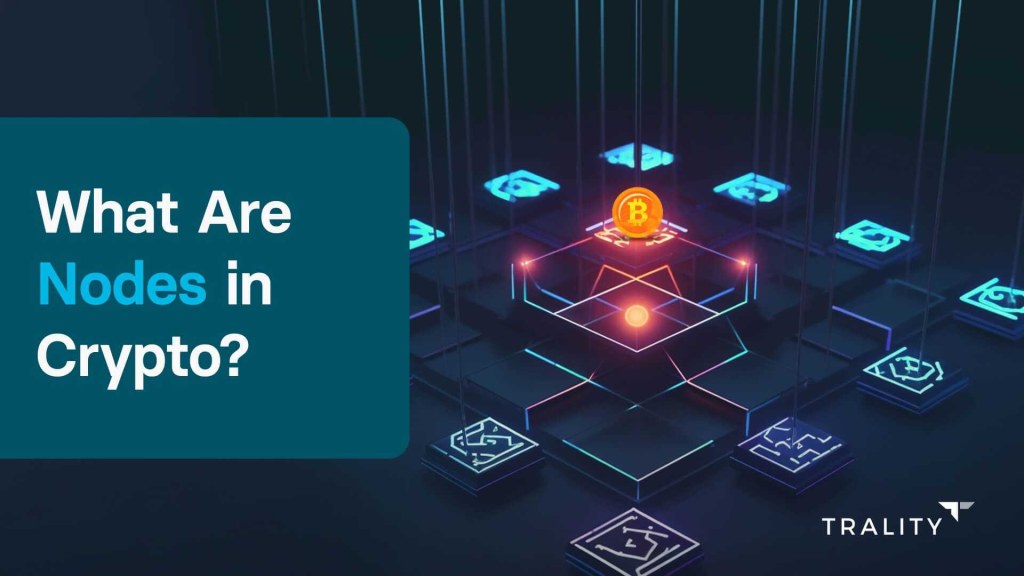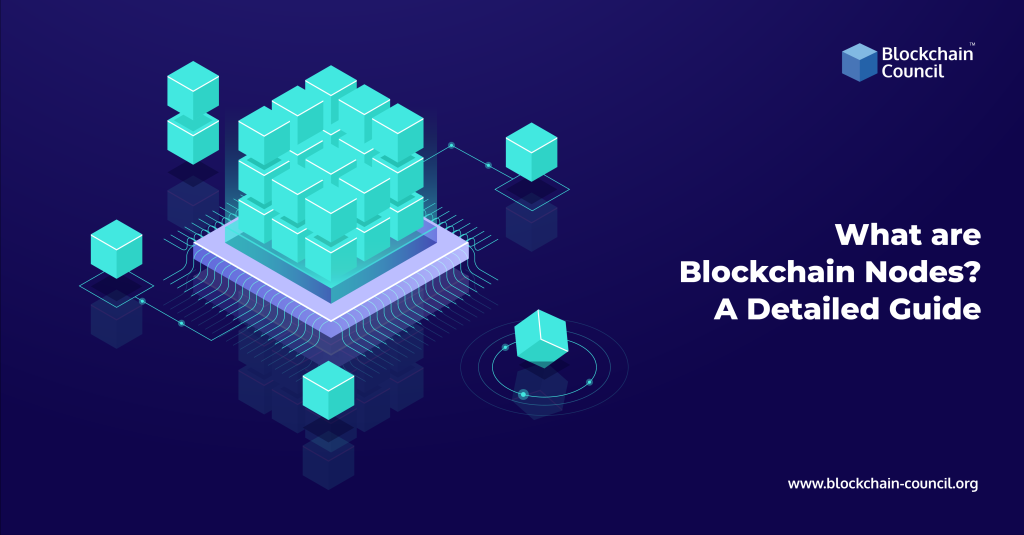Unlocking The Power Of Cryptocurrency Nodes: Your Key To Financial Innovation
Cryptocurrency Nodes: Understanding the Backbone of Digital Currency
Greetings, Readers! Today, we delve into the fascinating world of cryptocurrency nodes. In this article, we will explore what they are, who operates them, when they come into play, where they are located, why they are crucial, and how they function. So, fasten your seatbelts and let’s embark on this insightful journey into the realm of cryptocurrency nodes.
Introduction
3 Picture Gallery: Unlocking The Power Of Cryptocurrency Nodes: Your Key To Financial Innovation



The world of digital currencies is constantly evolving, and one of the key components that underpins their operation is cryptocurrency nodes. These nodes play a vital role in ensuring the smooth functioning of blockchain networks, like Bitcoin and Ethereum. In simple terms, cryptocurrency nodes are computers that participate in the validation, storage, and transmission of transactions across the network.
Now, let’s take a closer look at the various aspects of cryptocurrency nodes:
What Are Cryptocurrency Nodes? 🤔

Image Source: medium.com
Cryptocurrency nodes are computers that maintain a copy of the blockchain and contribute to the validation and verification of transactions. They act as the backbone of the network, ensuring the integrity and security of the entire system. These nodes communicate with each other to reach consensus on the validity of transactions and help prevent double spending.
The Role of Nodes in Transaction Validation
Nodes verify the authenticity and validity of transactions by checking if the sender has sufficient funds, if the transaction follows the network’s rules, and if the digital signatures are correct. Once a node validates a transaction, it propagates it to other nodes in the network, allowing for the creation of a transparent and immutable transaction history.
The Storage Function of Nodes
Nodes store a complete copy of the blockchain, which contains records of all transactions ever made on the network. This redundancy ensures that even if some nodes fail or malicious actors attempt to tamper with data, the integrity of the blockchain remains intact. Additionally, nodes store information about unspent transaction outputs (UTXOs), which helps in verifying future transactions.
The Transmission Mechanism of Nodes

Image Source: trality.com
Nodes transmit transactions and blocks across the network, facilitating the decentralized nature of cryptocurrencies. When a user initiates a transaction, it spreads through the network until it reaches the nodes responsible for validating it. Once the transaction is validated, it becomes part of a block and is added to the blockchain.
Who Operates Cryptocurrency Nodes? 🕵️♂️
The individuals or entities that operate cryptocurrency nodes are commonly referred to as node operators. These operators can range from individual enthusiasts to large organizations. Anyone with the required technical knowledge and hardware resources can become a node operator. However, the level of participation and influence in the network may vary depending on the type of cryptocurrency.
Individual Node Operators

Image Source: blockchain-council.org
Many cryptocurrency enthusiasts run nodes on their personal computers or specialized hardware devices. These individuals often have a strong belief in the principles of decentralization and prefer to actively participate in the network’s operations.
Professional Node Operators
As cryptocurrencies gain mainstream adoption, professional node operators have emerged. These entities operate nodes as a service, providing reliable infrastructure for users who do not have the technical expertise or resources to run their own nodes. Professional node operators often charge fees for their services.
Network Consensus Nodes
In certain cryptocurrencies, network consensus nodes are operated by designated entities responsible for maintaining the network’s consensus mechanism. These nodes hold significant influence and play a crucial role in decision-making processes, such as protocol upgrades and governance.
When Do Cryptocurrency Nodes Come into Play? ⌛
Cryptocurrency nodes come into play at various stages of a transaction’s lifecycle. Let’s take a closer look at these key moments:
Transaction Initiation
When a user initiates a cryptocurrency transaction, their wallet sends the transaction details to nearby nodes or the nodes they are connected to. These nodes propagate the transaction across the network, ensuring that it reaches the necessary validators for verification.
Transaction Validation
Upon receiving a transaction, nodes validate its authenticity and compliance with the network’s rules. This involves verifying digital signatures, confirming that the sender has sufficient funds, and checking for any potential double spending attempts.
Block Creation and Validation
Nodes play a crucial role in the creation and validation of blocks, which are a collection of verified transactions. Miners, who are specialized nodes, compete to solve complex mathematical problems to create new blocks. Other nodes then validate these blocks and add them to the blockchain if they meet the network’s consensus rules.
Consensus Mechanism Execution
Nodes participate in the consensus mechanism of the cryptocurrency network, which determines how transactions are agreed upon and added to the blockchain. This mechanism can vary depending on the cryptocurrency, with popular methods including Proof of Work (PoW) and Proof of Stake (PoS).
Where Are Cryptocurrency Nodes Located? 🌍
Cryptocurrency nodes are distributed across the globe, forming a decentralized network. The exact location of nodes can vary depending on the geographical distribution of users and node operators. However, nodes tend to concentrate in areas with a strong cryptocurrency community and robust internet connectivity.
Home-Based Node Operators
Many node operators run their nodes from the comfort of their homes. By utilizing personal computers or dedicated hardware devices, they contribute to the decentralized nature of cryptocurrencies from various corners of the world.
Data Centers and Server Farms
Some professional node operators manage large-scale operations by setting up nodes in data centers or server farms. These facilities provide the necessary infrastructure and resources to run multiple nodes efficiently. The concentration of nodes in data centers can enhance network performance and reliability.
Why Are Cryptocurrency Nodes Crucial? 🚀
The importance of cryptocurrency nodes cannot be overstated. Here are some key reasons why they are crucial:
Decentralization and Security
Cryptocurrency nodes ensure the decentralized nature of digital currencies by preventing a single point of failure. With nodes distributed across the network, the system becomes more resilient to attacks or attempts to manipulate transactions.
Transaction Verification
Nodes play a vital role in verifying transactions, ensuring that only valid and authentic transactions are added to the blockchain. Through consensus mechanisms, nodes collectively agree on the validity of transactions, maintaining the integrity of the entire network.
Network Governance and Upgrades
Node operators often participate in network governance by voting on proposals for protocol upgrades or changes. This democratic approach allows node operators to shape the future direction of the cryptocurrency, maintaining its adaptability and relevance.
Supporting Network Performance
By operating nodes, individuals and entities contribute to the overall performance and efficiency of the network. More nodes lead to a more distributed and robust network, capable of handling increased transaction volumes and supporting the growth of the ecosystem.
How Do Cryptocurrency Nodes Function? 🖥️
The functioning of cryptocurrency nodes can be complex, but let’s break it down into simpler terms:
Connecting to the Network
When a node comes online, it connects to other nodes in the network, forming a peer-to-peer network. This connectivity allows nodes to exchange information, propagate transactions, and reach consensus on the validity of transactions.
Validating Transactions
Nodes receive transactions from users and validate them by checking transaction details, digital signatures, and available funds. If the transaction is valid, the node broadcasts it to other nodes, ensuring its inclusion in the block creation process.
Creating and Validating Blocks
Nodes, particularly miners, compete to solve complex mathematical problems to create new blocks. Other nodes then validate these blocks by ensuring that they meet the network’s consensus rules. Once validated, the block is added to the blockchain.
Storing the Blockchain
Nodes store a complete copy of the blockchain, which contains records of all transactions. This storage ensures redundancy, maintaining the integrity of the blockchain even if some nodes go offline or data is tampered with. The blockchain is continuously updated as new blocks are added.
Advantages and Disadvantages of Cryptocurrency Nodes
Advantages of Cryptocurrency Nodes 👍
1. Enhanced Security: Nodes contribute to the security of the network by validating transactions and preventing double spending attempts.
2. Decentralization: The distributed nature of nodes ensures that no single entity has control over the network, promoting fairness and transparency.
3. Transparency: The blockchain maintained by nodes allows anyone to verify transactions and ensure their authenticity.
4. Governance Participation: Node operators can actively participate in decision-making processes, shaping the future of the cryptocurrency.
5. Network Performance: More nodes contribute to faster transaction processing and improved scalability of the network.
Disadvantages of Cryptocurrency Nodes 👎
1. Resource Intensive: Running a node can require significant computational power and bandwidth, making it inaccessible for individuals with limited resources.
2. Technical Complexity: Operating a node requires a certain level of technical knowledge, which can deter individuals with limited expertise.
3. Centralization Risks: While nodes aim to maintain decentralization, the concentration of nodes in certain areas or in the hands of a few entities may introduce centralization risks.
4. Potential Security Vulnerabilities: Nodes are not immune to security vulnerabilities, and malicious actors may attempt to exploit weaknesses in the network or individual nodes.
5. Cost: Operating nodes may incur expenses, such as electricity costs and maintenance fees, which can be a barrier for some individuals.
Frequently Asked Questions (FAQs)
1. Can I run a cryptocurrency node on my personal computer?
Yes, depending on the cryptocurrency, you can run a node on your personal computer. However, it is important to consider the hardware requirements and network connectivity to ensure optimal performance.
2. How long does it take for a transaction to be validated by nodes?
The time taken for transaction validation depends on various factors, such as network congestion, transaction fees, and the specific cryptocurrency’s consensus mechanism. Generally, transactions are validated within minutes, but it can vary significantly.
3. Do I need to be a node operator to use cryptocurrencies?
No, you do not need to be a node operator to use cryptocurrencies. Users can interact with the network through wallets and rely on nodes operated by others for transaction validation.
4. What happens if a node goes offline?
If a node goes offline, it temporarily ceases to participate in the network’s operations. However, the network remains functional as long as a sufficient number of nodes are online and able to validate transactions.
5. Are cryptocurrency nodes anonymous?
Cryptocurrency nodes themselves do not have inherent anonymity. Transactions on certain cryptocurrencies may provide varying degrees of anonymity, but the operation of nodes typically involves an identifiable IP address.
Conclusion: Embrace the World of Cryptocurrency Nodes 🌐
Cryptocurrency nodes are the backbone of digital currencies, ensuring their security, decentralization, and efficient functioning. They validate transactions, create and validate blocks, store the blockchain, and contribute to network governance. While operating a node may have its complexities and resource requirements, their importance cannot be overstated. By participating in the world of cryptocurrency nodes, you become an active contributor to the decentralized revolution. So, seize the opportunity and embrace this fascinating aspect of the digital era!
Take the first step today and explore the world of cryptocurrency nodes. Join the global network and contribute to the growth and security of digital currencies. Together, let’s shape the future of finance!
Disclaimer: The information provided in this article is for educational and informational purposes only. It does not constitute financial or investment advice. Always conduct your own research and consult with a professional before making any financial decisions.
This post topic: Blockchain Insights

